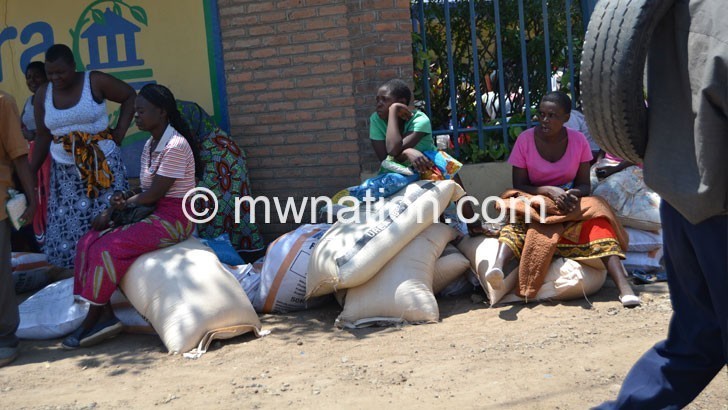Affordable Inputs Programme to use biometric system—Lowe
The Ministry of Agriculture says the Affordable Inputs Programme (AIP), which has replaced Farm Input Subsidy Programme (Fisp), will use the biometric system hence all farmers are required to have the national identity cards.
Addressing the media in Lilongwe on Friday, Minister of Agriculture Lobin Lowe said the AIP can help Malawi attain food security at household and national levels.

He said the programme will cover all smallholder farming households in the country estimated at 4.2 million and will increase access to quality and improved farm inputs such as fertilisers and maize seed.
In the provisional budget, the Minister of Finance announced that 3.5 million farmers will benefit from the programme but Lowe said the 4.2 million is the updated number of farming households in the country; hence all will benefit.
He said the ministry plans that by September, farmers should start buying the inputs and that each farming household will access two bags of fertiliser at K4 495 each with a five kilogramme certified seed at K2 000.
Lowe said: “My Ministry, with support from the National Registration Bureau and E-Government, has developed an electronic system that will be used to enable farmers to procure fertiliser and maize seed from approved suppliers.
“The farmer will just go to the supplier with the national identity card and the supplier will scan the identity card using a smartphone and the farmer will select the input he or she wants to purchase”.
Based on the 4.2 million beneficiaries, the ministry plans to procure a total of 213 955 metric tonnes of Urea, 213 955) metric tonnes of NPK and 21 396 metric tonnes of maize seed to be accessed by smallholder farmers.
Civil Society Agriculture Network (Cisanet) executive director Pamela Kuwali said in a written response the subsidy programme in its current design skews the agriculture budget and efforts at the ministry towards food security .





